
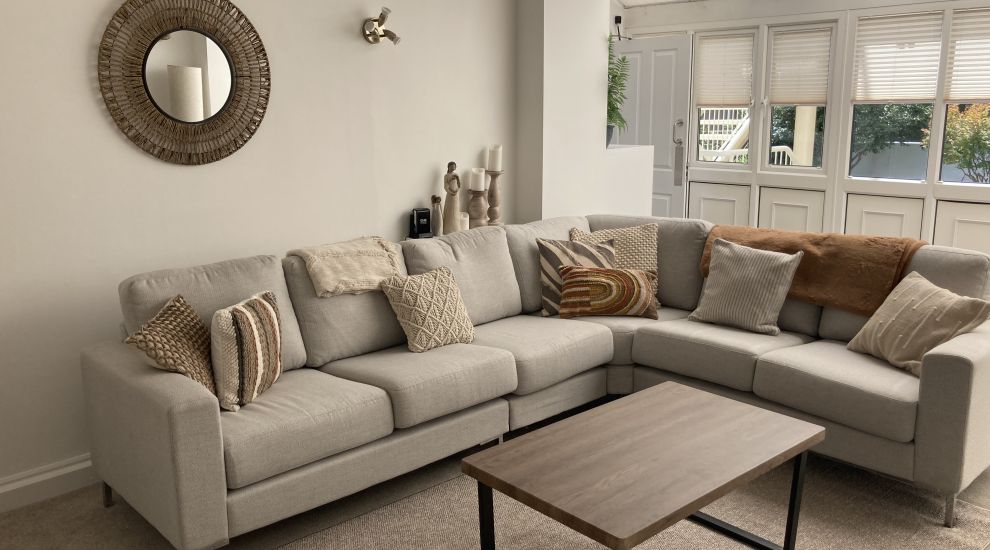

The island’s only independent domestic abuse charity providing round-the-clock confidential support recently ushered in a new era with the opening of its relocated safe house.
While Jersey Women's Refuge has already been helping locals for 35 years, that help can now extend to even more women and children who are, or have been, facing abuse.
The large facility accommodates up to 22 women and children at one time, and includes facilities for those with disabilities and/or pets, as well as those with sons up to the age of 18.
This comes after the charity's newly-appointed chief executive Lisa Leventhal spoke out about unfortunate situations in which women were turned away due to their complex needs.
Importantly, she added, the new space feels "less like a shelter", explaining: "We're aiming for a more light-hearted space that feels like a home. This will have a profoundly positive effect on the women staying with us, allowing them the physical and mental space to find sanctuary, heal and to pave the way for a life after domestic violence."
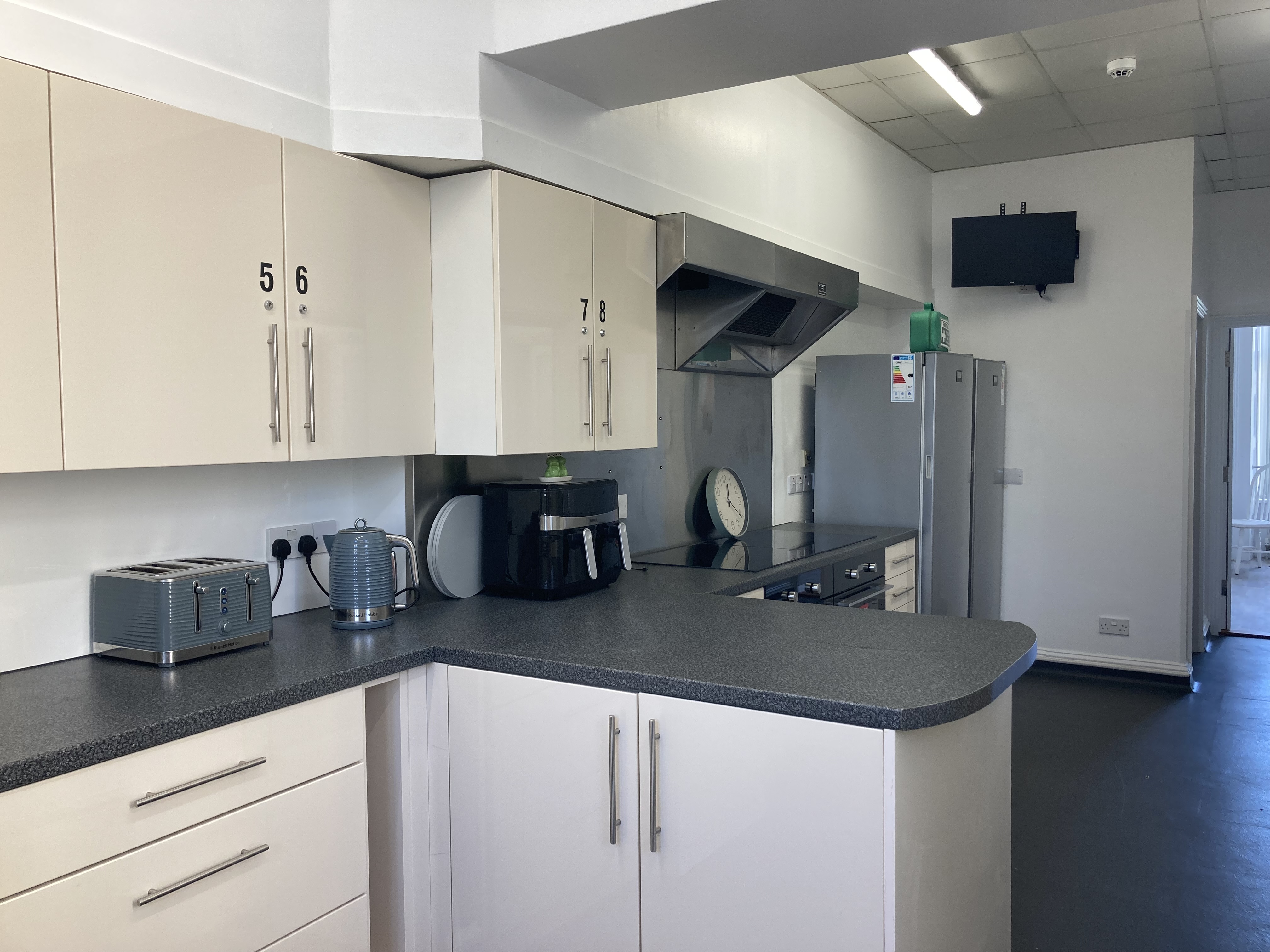
Pictured: In the kitchen, women each have their own lockable cupboard for food, and with new appliances, they can cook their favourite meals.
Charity co-patron Bailiff Timothy Le Cocq, who attended the opening, said it will allow JWR "to continue their excellent work in a dignified and discreet environment."
The move has cost the charity £130,000 in renovation fees, while Andium Homes has undertaken extensive work in providing the new refuge.
Layout alterations, improvements to the garden and security upgrades have been undertaken alongside the full refurbishment.
But even though Jersey's Domestic Abuse Law has now come into force – which grants judges power to impose domestic-abuse protection orders and was labelled a "crucial step" Home Affairs Minister Helen Miles – Ms Leventhal said there remains a stigma or misunderstanding around domestic abuse.
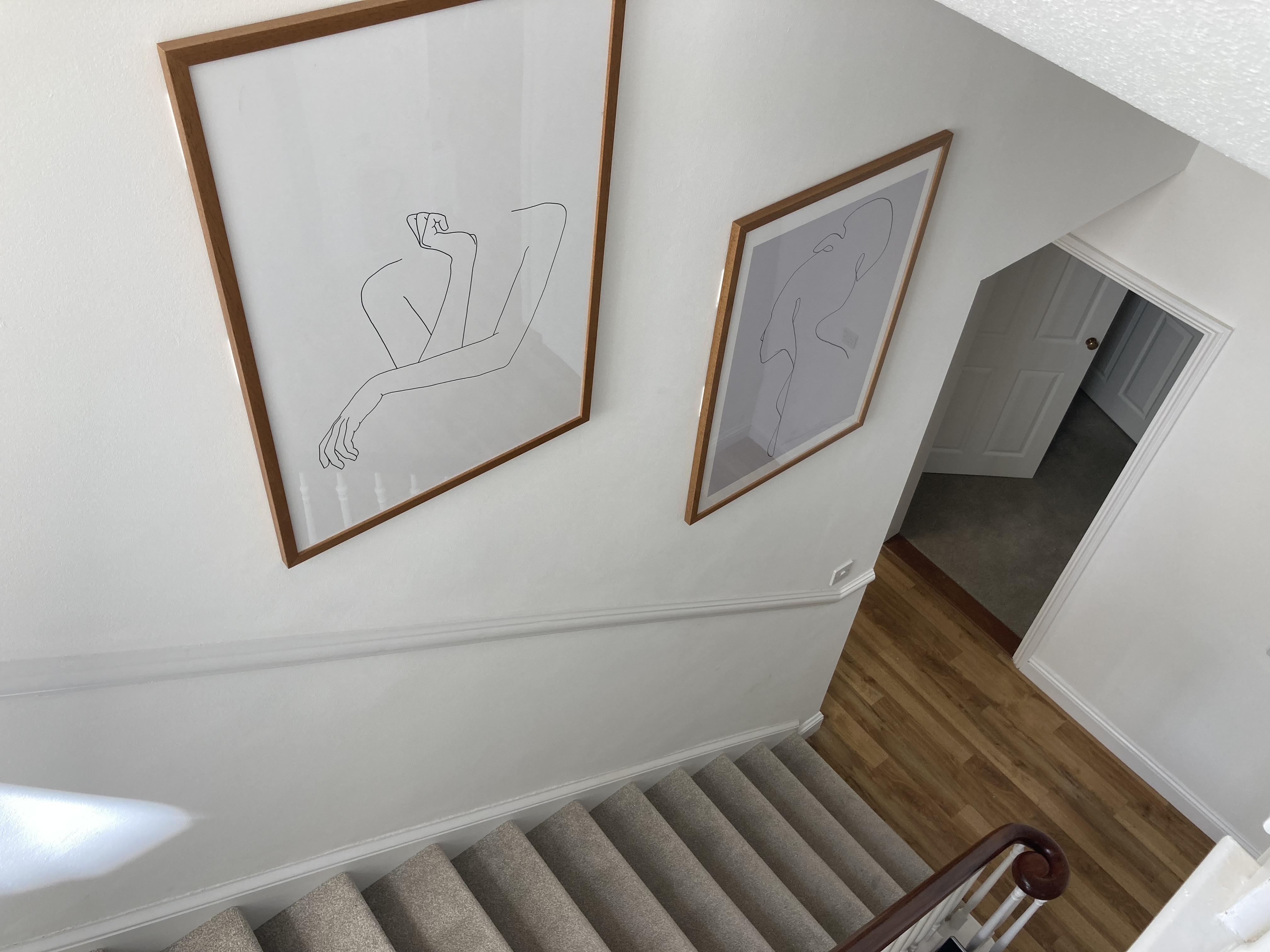
Pictured: The walls beside the staircases are lined with funky poster designs.
With the intention of openness within our community, Ms Leventhal therefore invited Express into the safe house to understand the work that the charity does whilst ensuring the location remains covert.
The charity's work has recently extended to financial assistance, helping women to re-start their lives after instances of financial abuse. But the safe house, she said, "constitutes an integral part of what we do".
The living area is for living, something made abundantly clear upon entry into the house. Here, life starts anew, free from domestic abuse.
The refuge began in 1988 as an essential space, with the bare basics and the key task of keeping women safe.
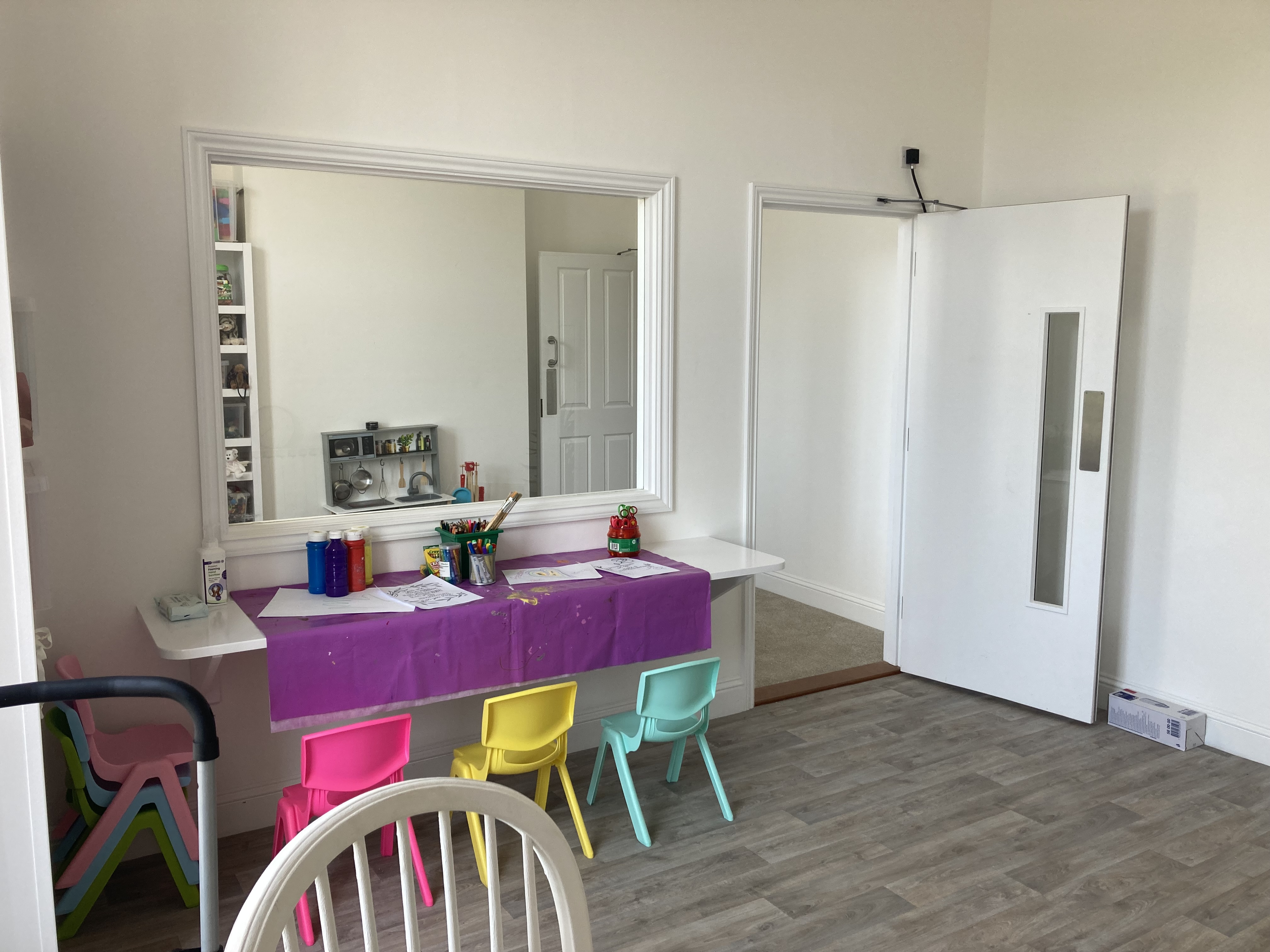
That task remains but the safe house has developed into a space with a "natural, caring, safe feel", Ms Leventhal said, and where "women are able to continue with the areas of their life that they want or need to while accessing services."
"Whether that's studying or working, two quiet rooms allow women to continue following their pursuits. Older children are also able to continue their schoolwork in a calm and safe environment.
"Women can enjoy a peaceful environment, places to talk, to break out and carry on with hobbies or self-care practices."
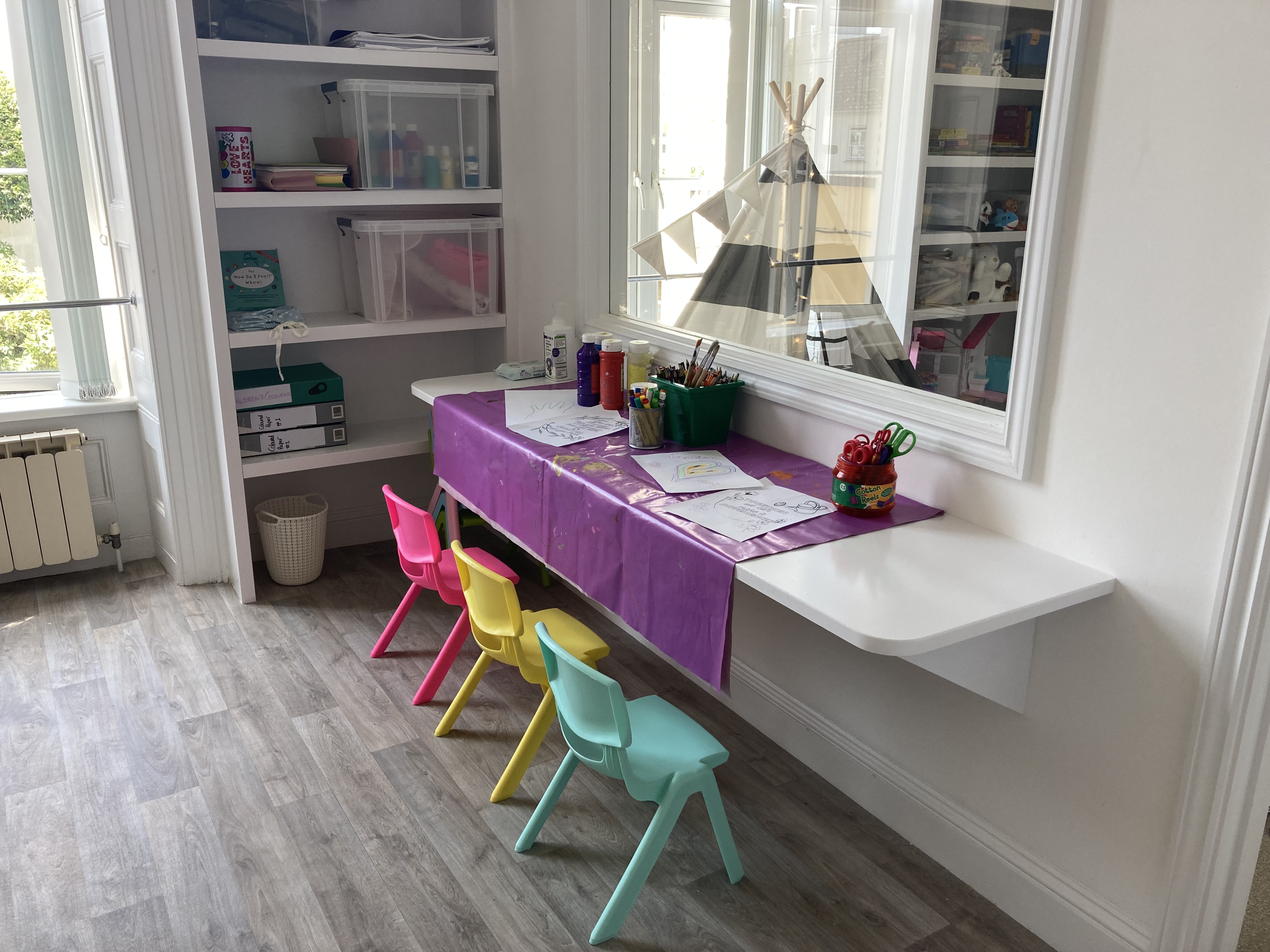
Testimony from a domestic-abuse survivor, who was abused physically and mentally by two separate perpetrators over eight years, revealed that it took "many years" to regain her confidence and self-respect.
Ms Leventhal said the new house offers "a place, time and support to rebuild and think afresh, whether that's regarding their relationship, domestic situation or their career."
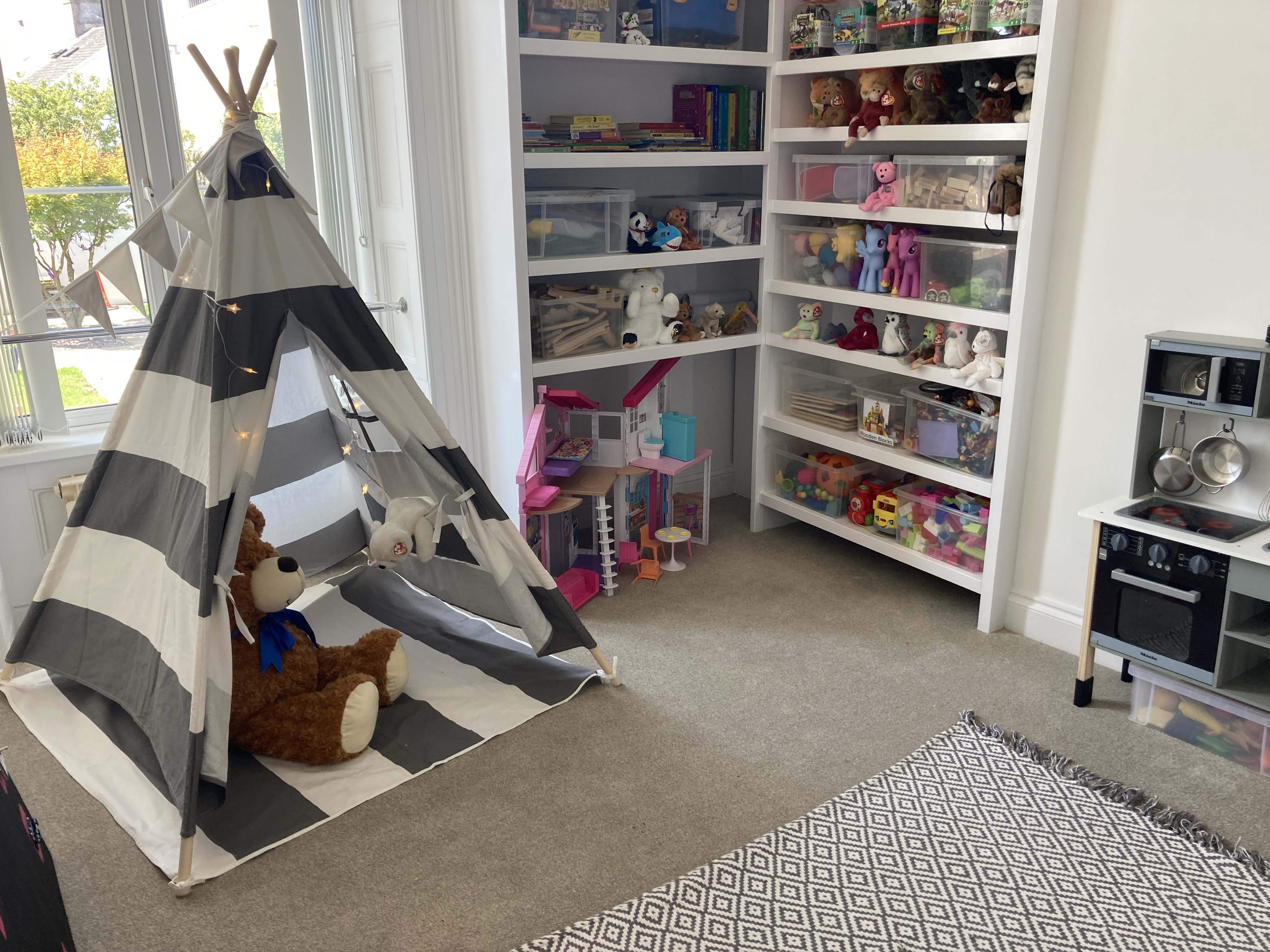
Pictured: Children will not be short of activities, with a playroom stocked with toys, teddies and tepees.
Leading on from the kitchen, the dining room has been modified to have a window which looks onto the playroom, offering residents the opportunity both to have their meals in peace while keeping an eye on their children.
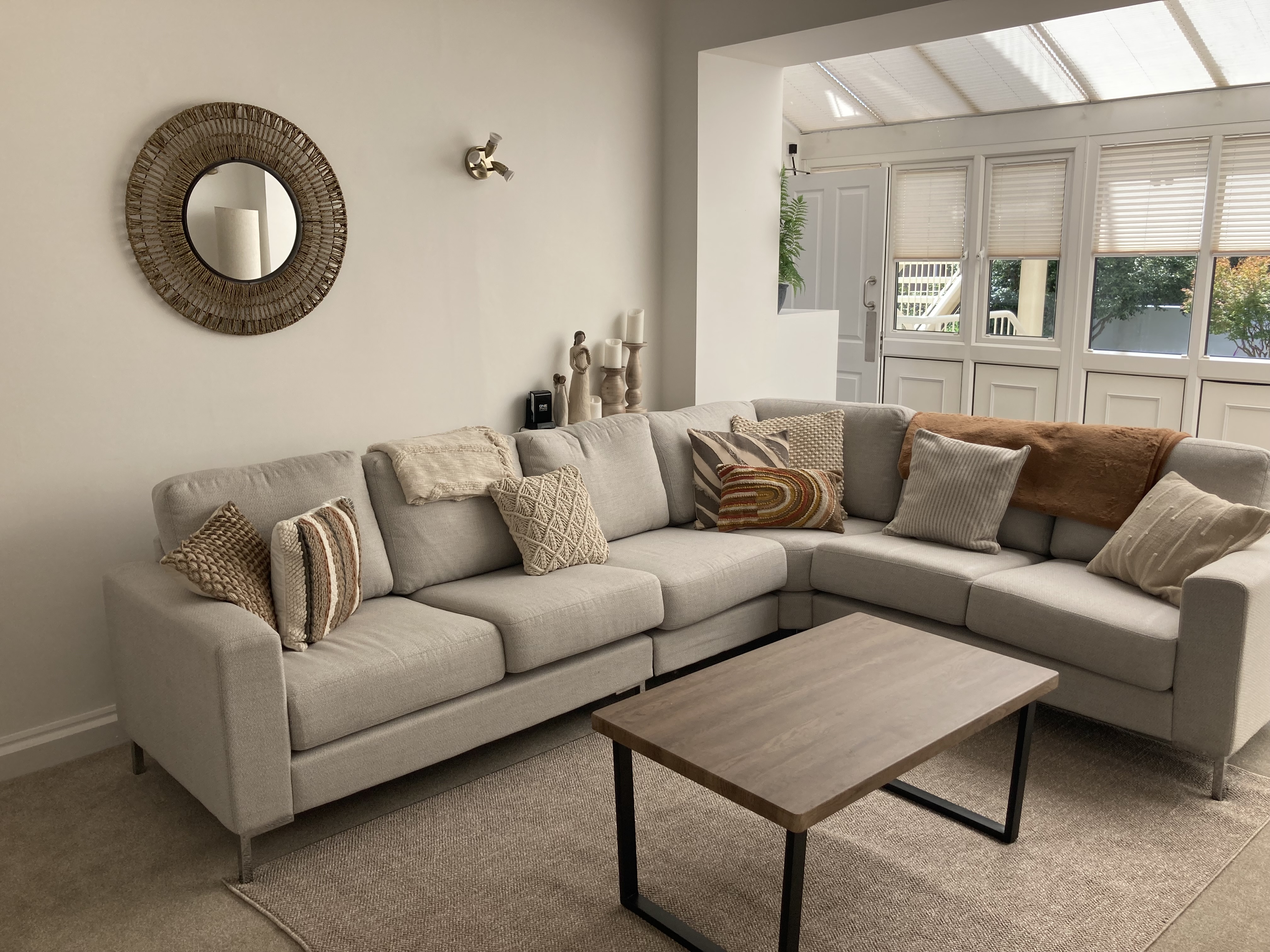
Warm cream colours, plenty of space, and modern furnishings, mean the living room feels welcoming and homey.
There's a large television, a shelf of books, board games – everything a home needs.
Upstairs, there are nine bedrooms, all of different sizes, layouts, and styles – there's no uniformity, nothing to make the space feel clinical or impersonal.
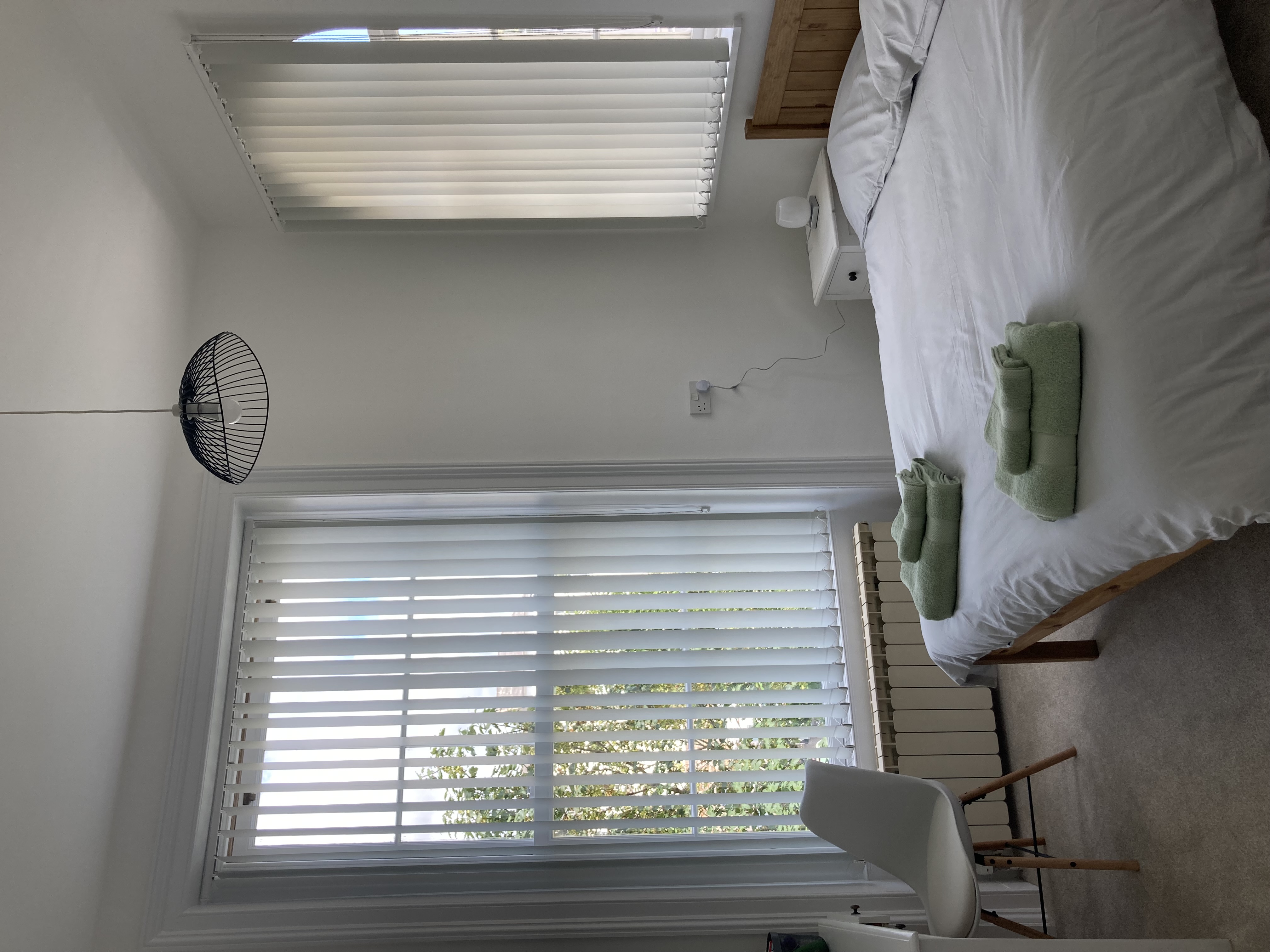
With desks, these are spaces where women can relax, recover, and even continue their jobs by working from home.
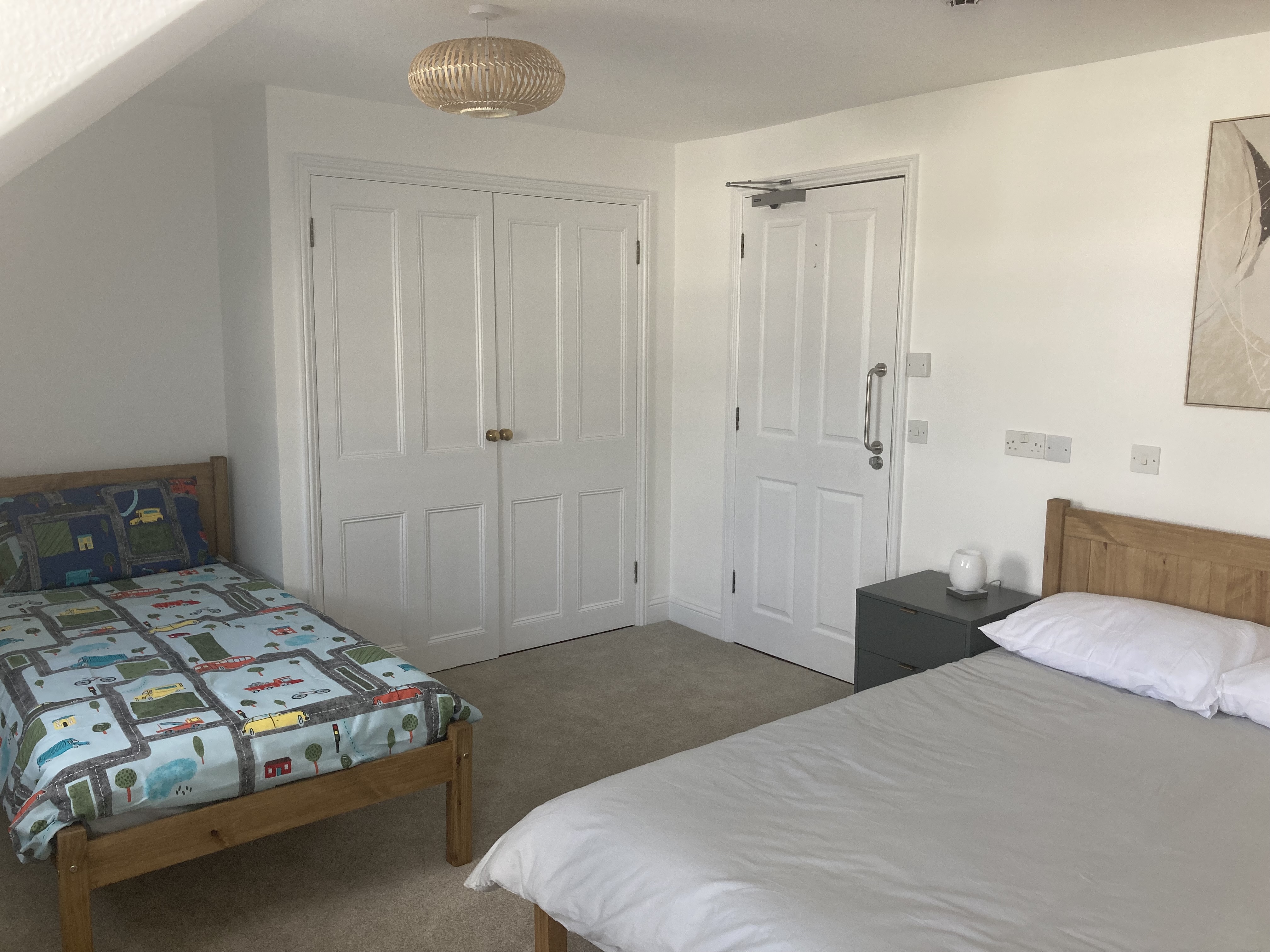
In some of the bedrooms, children can sleep with their mothers.
Significant refurbishment work has been undertaken to ensure the building meets the bespoke requirements of the facility, including alterations to ensure the building is accessible for those with disabilities.
Designed with input from the island's diversity and equality charity Liberate, the new safe house is intended to lift barriers to access.
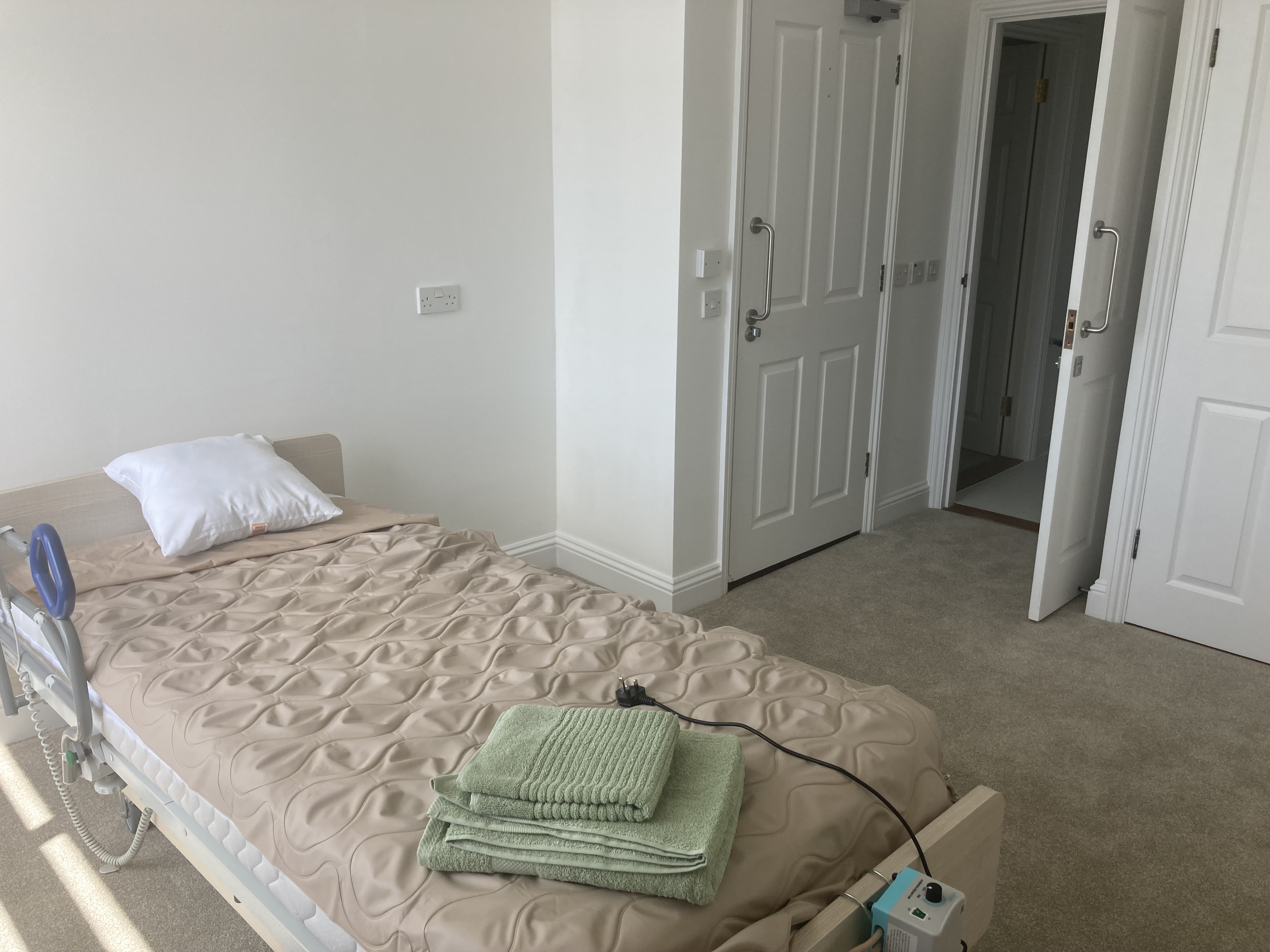
Ms Leventhal said: "It is critical that there shouldn't be barriers to access care for a person suffering domestic abuse." These facilities also cater for those who are partially sighted or neurodiverse.
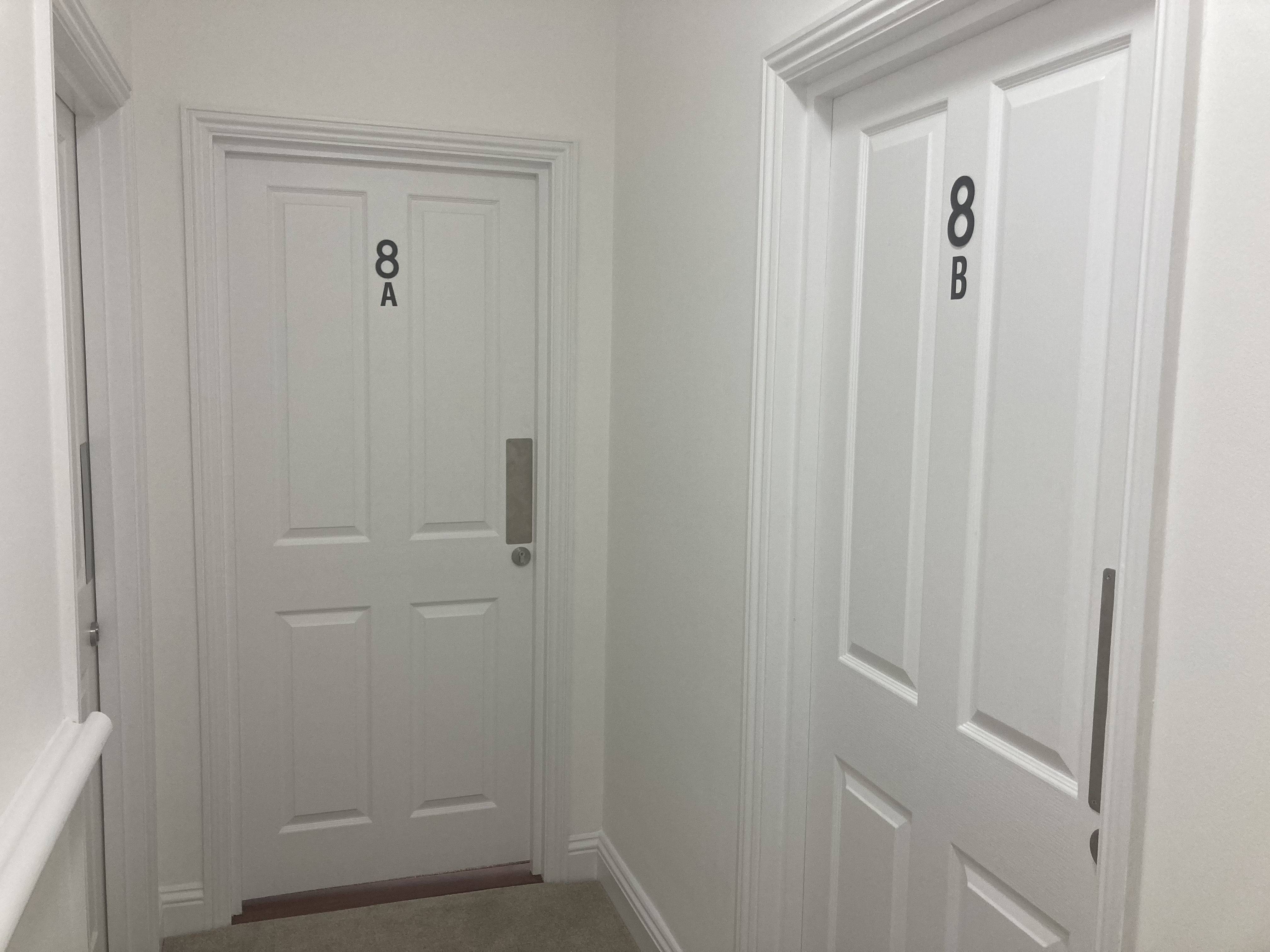
Pictured: Room 8B next door allows a carer to stay, if needed.
The building also has an elevator, making it wheelchair accessible, and the room designed to be used for women with physical disabilities has a fully adapted en-suite bathroom.
Finally, the self-contained flat will allow women to bring their sons up to the age of 18, something not possible before and which enables them to be with their older children in privacy.
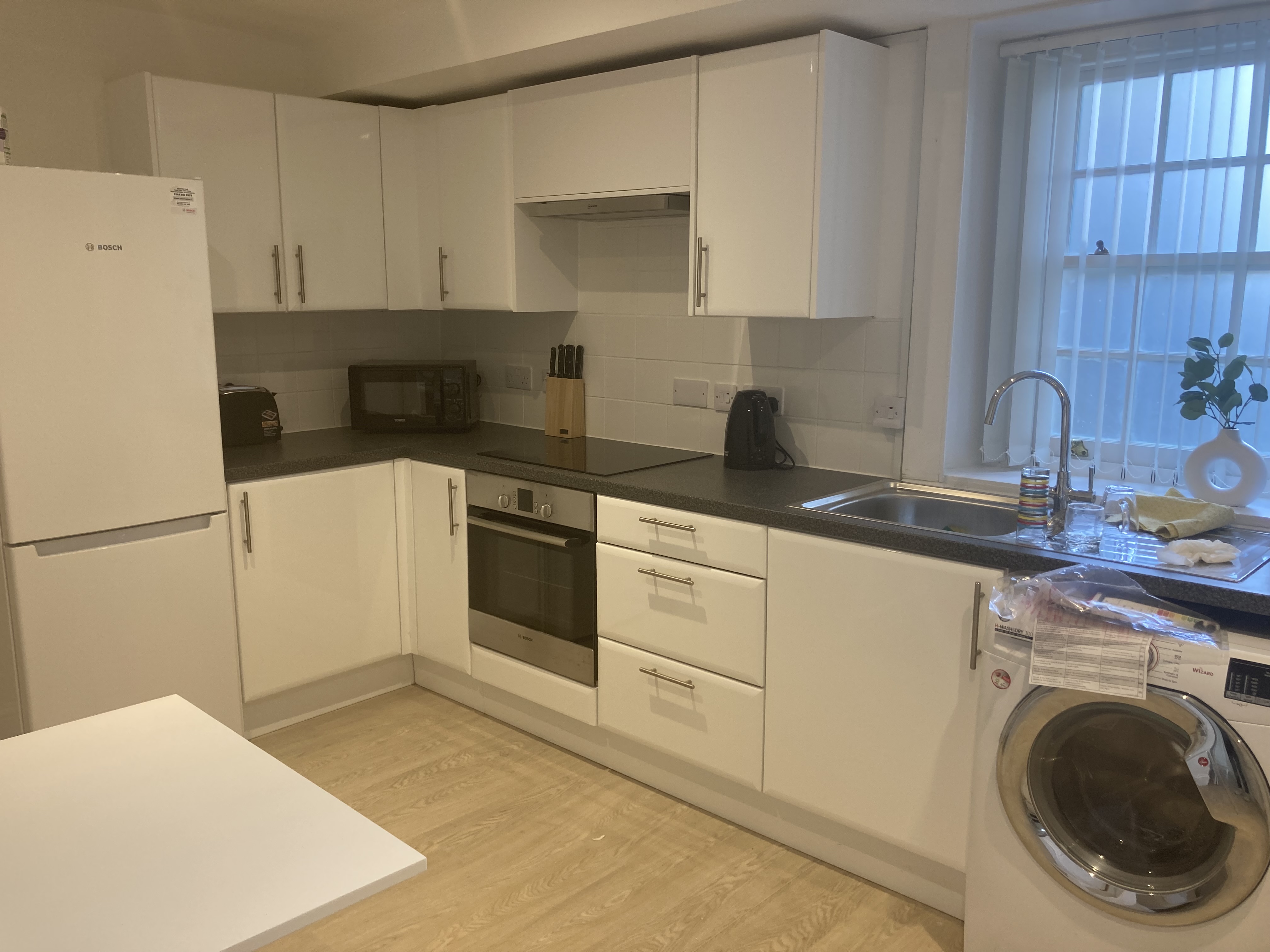
Pictured: The self-contained flat allows mothers to bring older teenage boys.
Kitted out with its own kitchen-dining area and two bedrooms – for the mother and children – the flat even has its own patio area.
Domestic abuse accounts for an average of 15% of all crime in Jersey, while domestic-abuse incidents in 2021 totalled 1,151.
In 2022, JWR's services supported a total of 364 women and children, with 42 women and 33 children having sought safety at the safe house. Women can access the services day or night. This can be critical, even life-saving, in an emergency.
There is no requirement to contact other agencies and the majority of women and children JWR cares for approach them independently.
You call the freephone number 0800 735 6836 if you wish to talk to a trained domestic abuse specialist worker. JWR's safe house and support are open 24/7.
The charity is still raising funds to pay for the new safe house. Make a donation here.
Comments
Comments on this story express the views of the commentator only, not Bailiwick Publishing. We are unable to guarantee the accuracy of any of those comments.